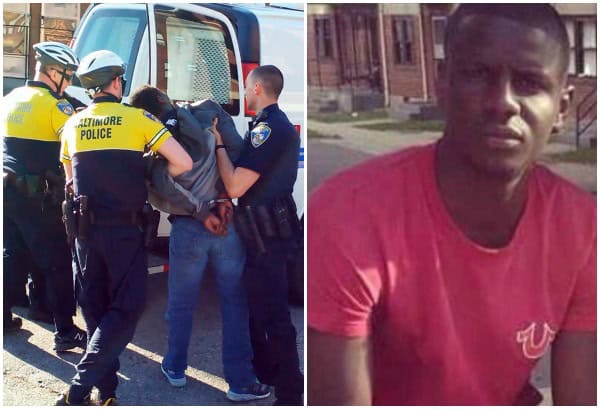The first case of many against the six Baltimore police officers who were charged in the death of Freddie Gray went to the jury on Monday [December 14] afternoon.
Gray died a week after having suffered a spinal cord injury during transport in a police van. The police said Gray was in possession of an illegal knife when he was arrested. Following his funeral on April 27, riots took place in the western sections of the city.
“’You should consider evidence in the light of your own experience,’ Judge Barry Williams told the jury during instructions given before the closing arguments in the trial of Baltimore City Police Officer William Porter, the first of six officers charged in connection with Gray’s death. Williams also told the jury that, ‘You are the sole judge of whether or not a witness should be believed,’” according to the Huffington Post.
Monday’s closing arguments didn’t provide convincing arguments either way, said Warren Brown, a veteran defense attorney who has been following the case. He said the problem for the prosecution during Porter’s trial is they’ve been “trying to fit a square peg into a round hole.”
Porter pleaded not guilty to charges of involuntary manslaughter, second-degree assault, misconduct in office and reckless endangerment. “The crux of the state’s charges is that Porter failed to act as a ‘reasonable officer,’ which, according to Brown, the state failed to do,” according to recent reports.
Brown explained that both Porter’s own testimony and the testimony of an expert witness, Captain Justin Reynolds of the Baltimore Police Department, made Porter out to be an honest and caring officer.
“The state failed to show that Officer Porter’s action or inaction directly led to the death of Freddie Gray,” said Brown in recent reports.
In Joseph Murtha‘s closing arguments, he told jurors the state had “played on your fears and emotions,” and then pointed out the prosecutors hadn’t produced any witnesses that could testify that Porter had acted like an “unreasonable officer.” She continued by asking the jury to look closely at the evidence of the assistant medical examiner, Dr. Carrol Allan, who classified Gray’s death as a homicide. Allan explained she had made the determination sometime before the fourth stop of the 45 minute tip. The testimonies of the multiple witnesses contradicted those findings, despite Allan’s investigation according to Murtha.
A witness, Baltimore City Police Officer Mark Gladhill, testified he saw Gray in the car fully in control of his actions during the fourth stop. He stated Gray was holding his head up and kneeling under his own power, which challenges Allan’s report.
“Murtha also cited the testimony of Reynolds – an expert in police policy and training – who testified last week that Porter not only acted as a reasonable officer, but that he actually went beyond the call of duty in helping Gray off the floor of the wagon at stop four and inquiring if Gray needed a medic or to go to the hospital. Reynolds said officers have to use discretion as how to implement the general orders, which direct officers to seat-belt prisoners while in transport, when working on the streets. Reynolds also said that sometimes officers have to break with general orders to maintain their own well-being. Officers have to take their own safety into consideration when they interact with detainess, Reynolds told the court during testimony on Friday,” according to the Huffington Post.
Three days before Gray’s arrest, an email had been sent to every officer of the Baltimore Police Department with changes to the current policy about how to deal with using seat belts for detainees transport. The orders became the most important piece of evidence in the case. The prosecution noted that Porter failed to abide by the general orders, but the defense produced witnesses who testified that no officers had ever seat-belted detainees during transport.
The jury of four Black women, three Black men, three white women and two white men began its deliberations around 2:30 on Monday afternoon.
The city is communicating with outside law enforcement agency partners and last week Baltimore’s police chief made a statement stating that people must respect the jury’s decision in Porter’s trial.
The jury announced Tuesday afternoon that they were deadlocked in the trial of the officer and the judge has instructed them to continue with their deliberation.
